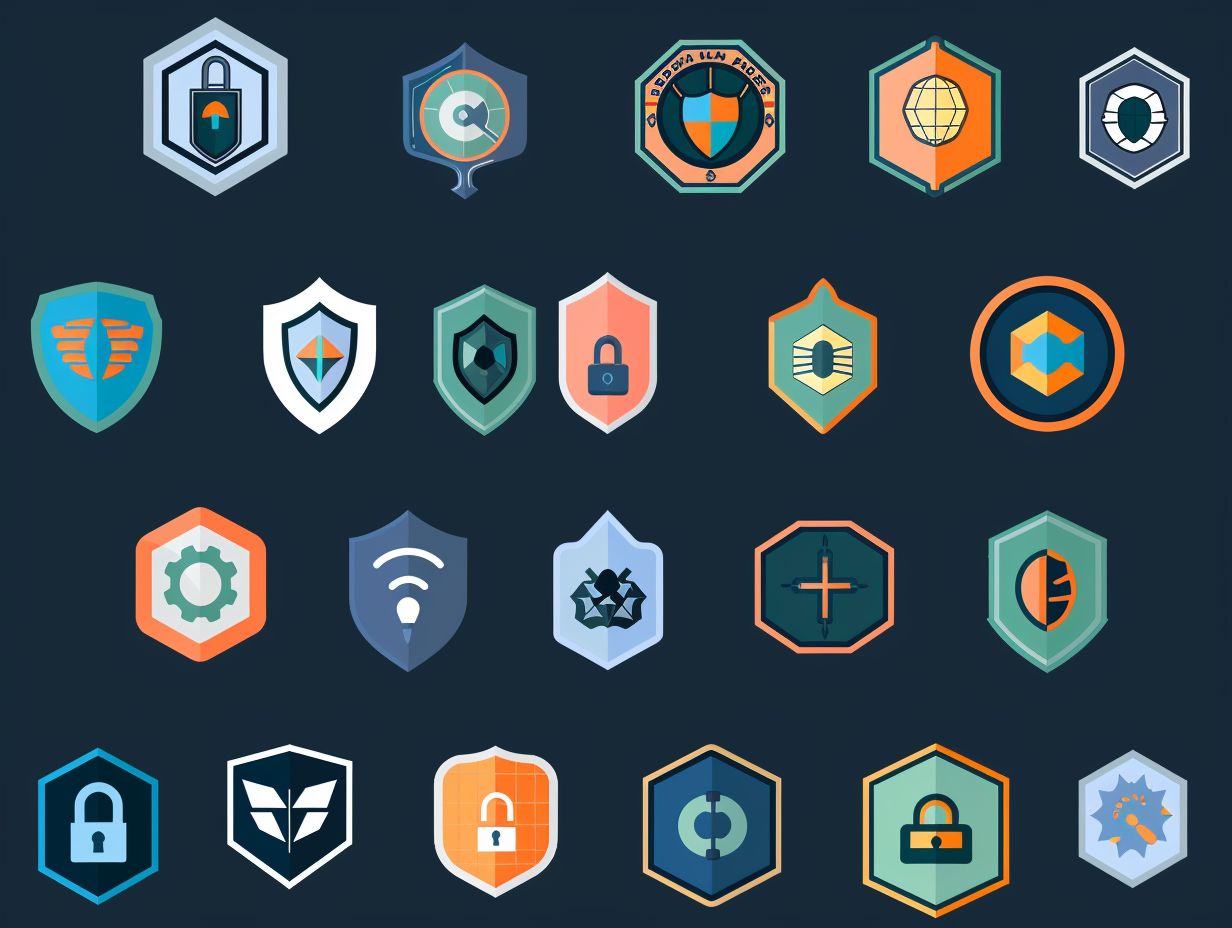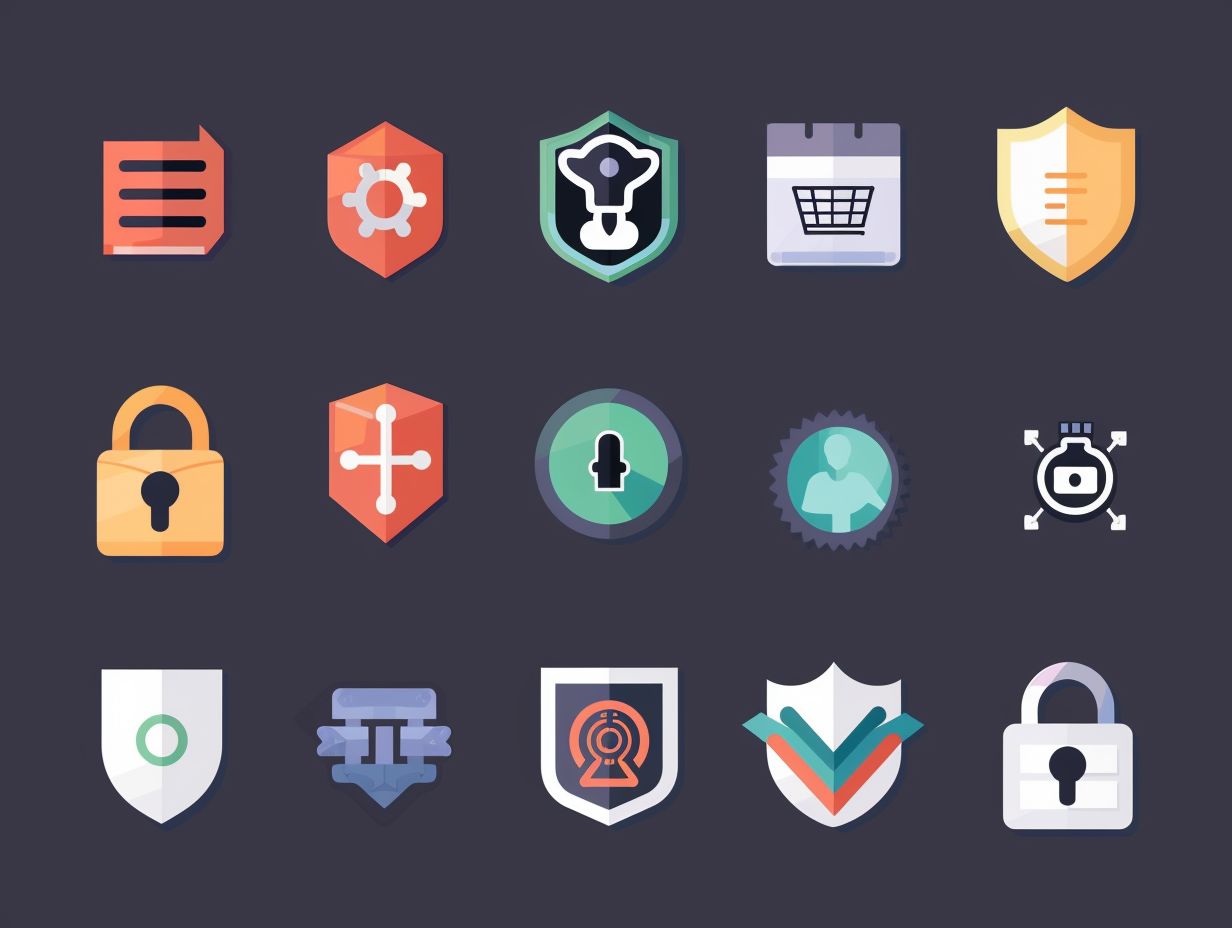If you are seeking to advance your career in cybersecurity, one of the most effective methods is to acquire cybersecurity certifications. These certifications serve as validation of your skills and expertise, showcasing your dedication to remaining current with industry developments. The discussion covers the advantages of attaining cybersecurity certifications, the benefits they provide for career progression, the significance of certifications for employers, and the leading cybersecurity certifications worth considering.
Key Takeaways:

What are Cybersecurity Certifications?
Cybersecurity certifications are credentials obtained by professionals like yourself to validate your expertise and skills in various aspects of information security. These certifications play a vital role in the job market as companies are increasingly looking for individuals with proven knowledge and abilities to safeguard their digital assets.
By demonstrating proficiency in areas such as network security, ethical hacking, and risk management, professionals with cybersecurity certifications distinguish themselves as reliable and competent experts in the field. Possessing these credentials opens doors to career advancement opportunities, offering you the chance to secure higher-paying positions and enhance your professional reputation within the cybersecurity industry.
Benefits of Obtaining Cybersecurity Certifications
Obtaining cybersecurity certifications provides you with various advantages in the field, such as improved job opportunities, heightened credibility, and the capacity to remain current with the most recent security concepts and technologies.
Advantages for Career Advancement
Obtaining cybersecurity certifications can significantly boost your career advancement opportunities by opening doors to higher-paying job roles and increasing your average annual salary.
Securing certifications not only validates your skills but also enhances your credibility among employers and peers in the industry. The demand for certified cybersecurity professionals is on the rise, leading to an increased need for specialized skill sets in areas such as ethical hacking, cloud security, and risk management. With each additional certification earned, you can land more senior positions, take on greater responsibilities, and unlock a pathway to leadership roles within your organization.
Importance for Employers
Employers highly regard candidates with cybersecurity certifications as these credentials indicate a dedication to cultivating and refining crucial cybersecurity abilities, enhancing their appeal as job candidates.
Individuals who have acquired respected certifications are actively sought after by employers to guarantee a greater degree of proficiency and expertise in securing sensitive information. The emphasis is not solely on holding a certification; rather, it is about demonstrating practical skills that are directly relevant to the cybersecurity challenges encountered in the industry.
Certified professionals contribute a sense of credibility and assurance to an organization’s cybersecurity defenses, offering employers a heightened level of confidence in their capacity to safeguard valuable data assets.
Top Cybersecurity Certifications to Consider

There are several top cybersecurity certifications that stand out in the industry, providing professionals like you with the opportunity to validate your expertise in key areas of information security.
Certified Information Systems Security Professional (CISSP)
The CISSP certification is a widely recognized credential that validates your expertise in designing, implementing, and managing a secure business environment. Covering eight essential domains related to security, such as Security and Risk Management, Asset Security, Security Architecture and Engineering, and Communication and Network Security, the CISSP exam is known for its rigor. Professionals seeking this certification often aim for roles like Cyber Security Manager, Information Security Analyst, or Security Consultant. CISSP holders are esteemed in the industry, with their profiles shining bright due to the credibility and trust that this certification bestows upon their skillset.
CompTIA Security+
The CompTIA Security+ certification equips you with the essential skills needed to secure networks, devices, and applications, establishing it as a valuable entry-level certification within the cybersecurity domain. By concentrating on exam objectives such as risk management, cryptography, network architecture, and identity management, CompTIA Security+ ensures that you develop a comprehensive understanding of cybersecurity principles.
In addition, key concepts like threat intelligence, incident response, and penetration testing are covered, effectively preparing you for real-world scenarios. Job opportunities for Security+ certified individuals span across roles from cybersecurity analysts to security consultants in various industries. This certification serves a pivotal role in establishing fundamental cybersecurity knowledge, acting as a gateway for professionals seeking to advance their careers in the dynamic field of cybersecurity.
Certified Ethical Hacker (CEH)
The CEH certification validates your skills in identifying system vulnerabilities and utilizing ethical hacking techniques to secure your organization’s networks and data. This certification encompasses a broad spectrum of tools and methodologies crucial for cyber security professionals. From performing footprinting and reconnaissance to scanning networks for vulnerabilities, CEH provides you with the necessary knowledge and expertise to defend against cyber attacks.
By grasping the principles of ethical hacking, you can take proactive measures to protect systems and data from malicious intruders.
The practical implications of the CEH certification are extensive, enabling certified individuals to operate across various industries, safeguarding sensitive information and ensuring the security of digital assets.
GIAC Security Essentials (GSEC)
The GSEC certification focuses on validating your understanding of information security concepts, incident handling, and network protocols, enhancing your ability to tackle cybersecurity challenges effectively.
It delves into key areas such as network security, risk management, access controls, cryptography, and security policies. The certification equips you with the knowledge and skills necessary to respond to security incidents promptly and efficiently, helping to minimize potential threats and protect organizational data.
By obtaining GSEC certification, you will develop practical skills in threat detection, vulnerability assessment, incident response techniques, and compliance procedures, which are essential in maintaining a secure cyber environment. This certification is highly valued in the industry due to its comprehensive coverage of essential security principles and hands-on practical experience.
Offensive Security Certified Professional (OSCP)

The OSCP certification is highly esteemed in the cybersecurity field for validating your practical skills in penetration testing and ethical hacking, showcasing your proficiency in identifying and addressing security vulnerabilities.
This certification is distinctive for its hands-on methodology, necessitating candidates to showcase their capabilities in real-world situations instead of merely responding to multiple-choice queries. Obtaining the OSCP certification equips you with advanced penetration testing skills, enabling you to replicate genuine attacks to pinpoint weaknesses in systems and networks. This practical exposure readies you to manage intricate cybersecurity issues proficiently, providing you with the resources and expertise necessary to safeguard information assets against malicious threats.
Certified Information Security Manager (CISM)
The CISM certification validates your expertise in managing information security programs, risk management, and governance, preparing you to assume leadership roles in cybersecurity management. The domains assessed in the CISM certification include information security governance, information risk management, information security program development and management, and information security incident management. By acquiring this certification, you can enhance your managerial skills by showcasing your capability to create and supervise comprehensive information security programs.
CISM provides cybersecurity professionals with a strategic outlook, give the power toing you to synchronize security initiatives with organizational objectives and adeptly convey the significance of cybersecurity practices to key stakeholders.
Certified Information Systems Auditor (CISA)
The CISA certification validates your expertise in auditing, control, and assurance of information systems, enhancing your ability to evaluate and improve your organization’s IT and business processes.
By obtaining the CISA certification, you will gain a deep understanding of auditing principles and practices, enabling you to assess the effectiveness of internal controls, risk management frameworks, and compliance processes within your organization. This certification will equip you with the knowledge to identify vulnerabilities in information systems and implement strategies to mitigate risks.
Being CISA-certified showcases your commitment to upholding high standards of IT governance, which is crucial for maintaining the integrity and security of organizational data. The impact of CISA certification reverberates across all levels of organizational governance, ensuring that your IT systems align with business objectives and regulatory requirements.
EC-Council Certified Security Analyst (ECSA)
The ECSA certification is designed to validate your skills in ethical hacking, network analysis, and security assessment methodologies, preparing you to effectively tackle intricate cybersecurity challenges.
This certification provides in-depth knowledge of the tools commonly utilized in penetration testing and vulnerability assessments, offering practical experience with industry-standard software and methods. Throughout the program, you will learn how to conduct comprehensive security analyses, simulate real-world attacks, and identify potential system vulnerabilities.
Covering advanced exploitation techniques, social engineering tactics, and threat modeling practices, the ECSA program aims to enhance your capability to think and act like proficient attackers. By mastering these specialized skills, you can enhance organizations’ security against constantly evolving cyber threats and stay at the forefront in the dynamic cybersecurity landscape.
CompTIA Cybersecurity Analyst (CySA+)
The CySA+ certification validates your ability to proactively identify and mitigate security threats, enhancing your skills in cybersecurity analytics and vulnerability assessment.
This certification is highly valued in the cybersecurity industry as it signifies that you possess a deep understanding of security analytics and threat detection techniques. Cybersecurity analysts play a crucial role in safeguarding organizations against potential cyber threats by continuously monitoring and analyzing network activity. You are responsible for detecting any suspicious behavior, investigating incidents, and implementing effective strategies to prevent security breaches. The CySA+ certification equips professionals with the knowledge and expertise needed to excel in this challenging and ever-evolving field.
Certified Information Privacy Professional (CIPP)

The CIPP certification focuses on validating your expertise in data privacy laws, regulations, and best practices, equipping you to effectively navigate the complex landscape of privacy protection.
One of the key aspects that makes CIPP certification highly regarded in the field is its emphasis on various privacy frameworks such as GDPR, HIPAA, and CCPA. Understanding these frameworks is crucial for you to ensure that the data you handle is compliant with the specific regulations governing its use and protection. The knowledge gained through CIPP certification will enable you to assess risks, implement necessary safeguards, and establish protocols that uphold individuals’ right to privacy.
In today’s digital age, where data breaches and privacy violations are rampant, holding a CIPP certification demonstrates your commitment to safeguarding sensitive information and upholding ethical standards.
Frequently Asked Questions
What are some popular cybersecurity certifications that can boost my career?
Some popular cybersecurity certifications that can boost your career include CISSP (Certified Information Systems Security Professional), CISM (Certified Information Security Manager), CEH (Certified Ethical Hacker), and CompTIA Security+.
Why should I consider obtaining a cybersecurity certification?
Obtaining a cybersecurity certification can demonstrate your expertise and knowledge in the field of cybersecurity, making you a more attractive candidate to potential employers and increasing your earning potential.
Are there any prerequisites for obtaining a cybersecurity certification?
Each certification has its own set of prerequisites, but most require a certain level of experience in the field of cybersecurity and may also require passing an exam.
How long does it take to obtain a cybersecurity certification?
The length of time it takes to obtain a cybersecurity certification depends on the specific certification and your level of experience. Some certifications require a certain number of years of experience before you can even take the exam, while others can be obtained within a few months.
Do I need to renew my cybersecurity certification?
Most cybersecurity certifications require renewal every few years, usually through completing continuing education credits or retaking the exam. This ensures that certified professionals are staying up-to-date on the latest developments and best practices in the field.
Can having a cybersecurity certification help me advance in my career?
Yes, having a cybersecurity certification can open up opportunities for advancement within your current organization or make you a more competitive candidate for higher-level positions in other companies.

